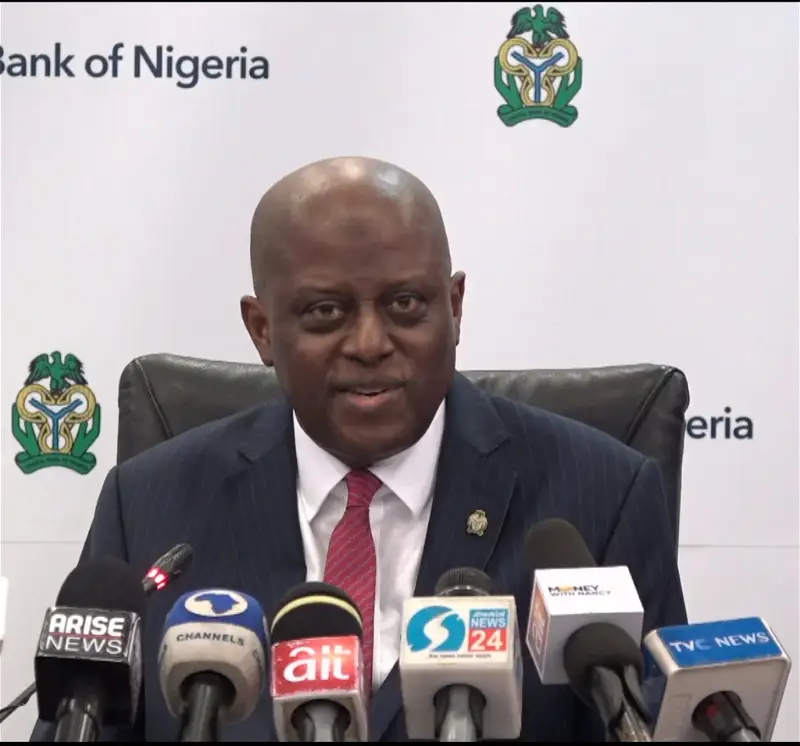
The Central Bank of Nigeria (CBN) stated in Abuja on Friday that its monetary policies and actions have contributed to the growth and stability of the nation’s economy.
CBN Governor, Mr. Olayemi Cardoso, made these remarks during an engagement with the Senate Committee on Banking, Insurance, and other Financial Institutions.
Cardoso highlighted positive economic indicators, suggesting that Nigerians could anticipate better economic conditions. “The spread between official and BDC rates has narrowed significantly from N162.62 in January to N47.22 in June, indicating successful price discovery, increased market efficiency, and reduced arbitrage opportunities,” he said.
He reported that the stock of external reserves had increased to $36.89 billion as of July 16, compared to $33.22 billion at the end of December 2023, largely driven by receipts from crude oil-related taxes and third-party receipts. Cardoso noted that the external reserves as of the end of June could finance over 11 months of importation of goods and services or 14 months of goods only, significantly higher than the prescribed international benchmark of three months, indicating a strong buffer against external shocks.
Cardoso emphasized the robustness and diversity of the banking sector, which comprises 26 commercial banks, six merchant banks, and four non-interest banks. He highlighted improvements in key indicators such as capital adequacy, liquidity, and non-performing loan ratios, underscoring the sector’s growing stability and resilience. “The equity market has shown impressive performance, with the All-Share Index rising by 33.81 percent and market capitalization expanding by 38.33 percent from December 2023 to June 2024, reflecting growing investor confidence,” he said.
While encouraged by these positive trends, Cardoso assured that the CBN remains vigilant and committed to implementing policies that support sustainable growth in the financial markets while maintaining overall economic stability. He also outlined measures to combat inflation, including raising the policy rate by 750 basis points to 26.25 percent, increasing cash reserve ratios, normalizing open market operations as the primary liquidity management tool, and adopting Inflation Targeting as the new monetary policy framework.
In the area of banking supervision, Cardoso mentioned decisive actions taken to ensure the safety, soundness, and resilience of the banking industry. These include interventions in three banks, revocation of Heritage Bank’s license, increasing minimum capital requirements, and enhancing AML/CFT supervision. He added that new frameworks for Cash Reserve Requirements and cybersecurity had been introduced, along with prohibiting the use of foreign currency collaterals for local currency loans.
Cardoso also announced plans to review micro and macro prudential guidelines to reinforce the resilience of financial institutions, thereby creating a secure and attractive investment climate. “We have signaled our plans to re-capitalize deposit money banks in Nigeria to improve capital adequacy and their capacity to grow the economy. Our ultimate goal is to create a more stable, resilient, and efficient financial system that can better serve the Nigerian economy while adhering to international best practices,” he said.
Earlier, the Chairman of the Committee, Sen. Adetokunbo Abiru, stated that the purpose of the interaction was to update the committee on the efforts, activities, objectives, and plans of the CBN concerning monetary policy.